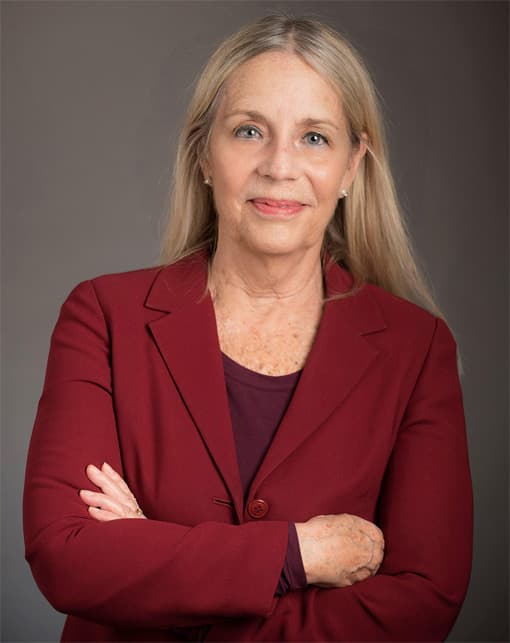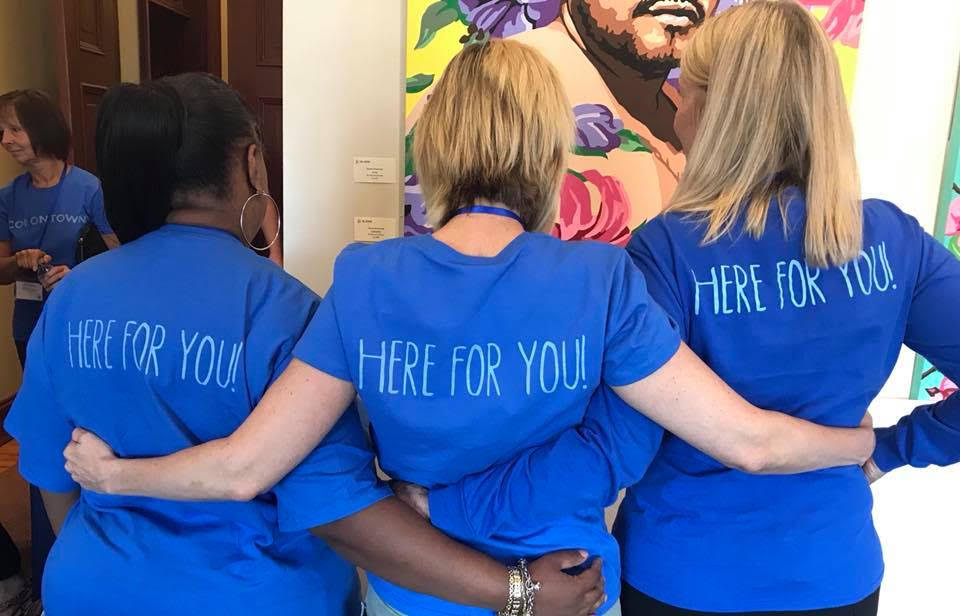Interview with Erika Hanson Brown, founder of the patient leader community COLONTOWN

If you’re in the field of colorectal cancer (CRC), there’s no doubt you have heard of Erika Hanson Brown. Brown is known as a woman of many talents due to her passion for helping others and her ambition to unite her community. Brown is the “Founding Mayor” of COLONTOWN, an online community dedicated to improving the lives of people with colorectal cancer. She is also CEO and cofounder of PALTOWN, the non-profit organization that oversees COLONTOWN. A 17-year survivor of stage III colon cancer, Brown serves on the National Cancer Institute’s Colon Cancer Task Force and is a CRC Dream Team member at Stand Up to Cancer.
Tell us a little more about you and your background
I was born and raised in a small Montana “cowboy” town: Miles City. My early years were a combination of being known by everyone in that small town and traveling back to the East Coast, with anonymity in the crowded cities. During WWII, my mother wrote as a freelance journalist for several reporting entities; after the war, she became a life insurance sales agent. It was rare for women to be working during those days, but her income enabled a lifestyle for all of us that included that all-important travel that my mother most wanted for us all.
But I am One
I cannot do everything
But I can do something
What I can do I ought to do
And what I ought to do
By the Grace of God,
I will do.
— “I Can Do Something” by Edward Everett Hale
Why did you decide to start COLONTOWN?
What are the biggest unknown truths about colorectal cancer?
What are some of the ways people can get involved in the CRC community?
Currently, we offer two patient/caregiver training programs (online and, when feasible, in person):
- Empowering Patient Leaders (community hosts and admins)
- Tom’s Clinical Trials Navigators
Go to our website www.colontown.org. There are videos to watch and articles to read. We host public-facing groups on Facebook as well:
- COLONTOWN NEW TIMES
- COLONTOWN BLOGGERS’ HAVEN
- COLONTOWN PUBLIC LIBRARY
These three groups are public, and anyone can join for any reason. To join the private conversation in COLONTOWN, register on the website to receive an email confirmation with instructions.

References
1American Cancer Society. Colorectal Cancer Facts & Figures 2017-2019. https://www.cancer.org/content/dam/cancer-org/research/cancer-facts-and-statistics/colorectal-cancer-facts-and-figures/colorectal-cancer-facts-and-figures-2017-2019.pdf. Published in 2017. Accessed March 24, 2020.
2Ahnen DJ, Wade SW, Jones WF, et al. The Increasing Incidence of Young-Onset Colorectal Cancer: A Call to Action. Mayo Clin Proc. 2014;89(2):216-224. doi:10.1016/j.mayocp.2013.09.006
3American Cancer Society. Can Colorectal Cancer Be Prevented? https://www.cancer.org/cancer/colon-rectal-cancer/causes-risks-prevention/prevention.html. Last Medical Review: February 21, 2018, Last Revised: May 30, 2018. Accessed March 24, 2020.
